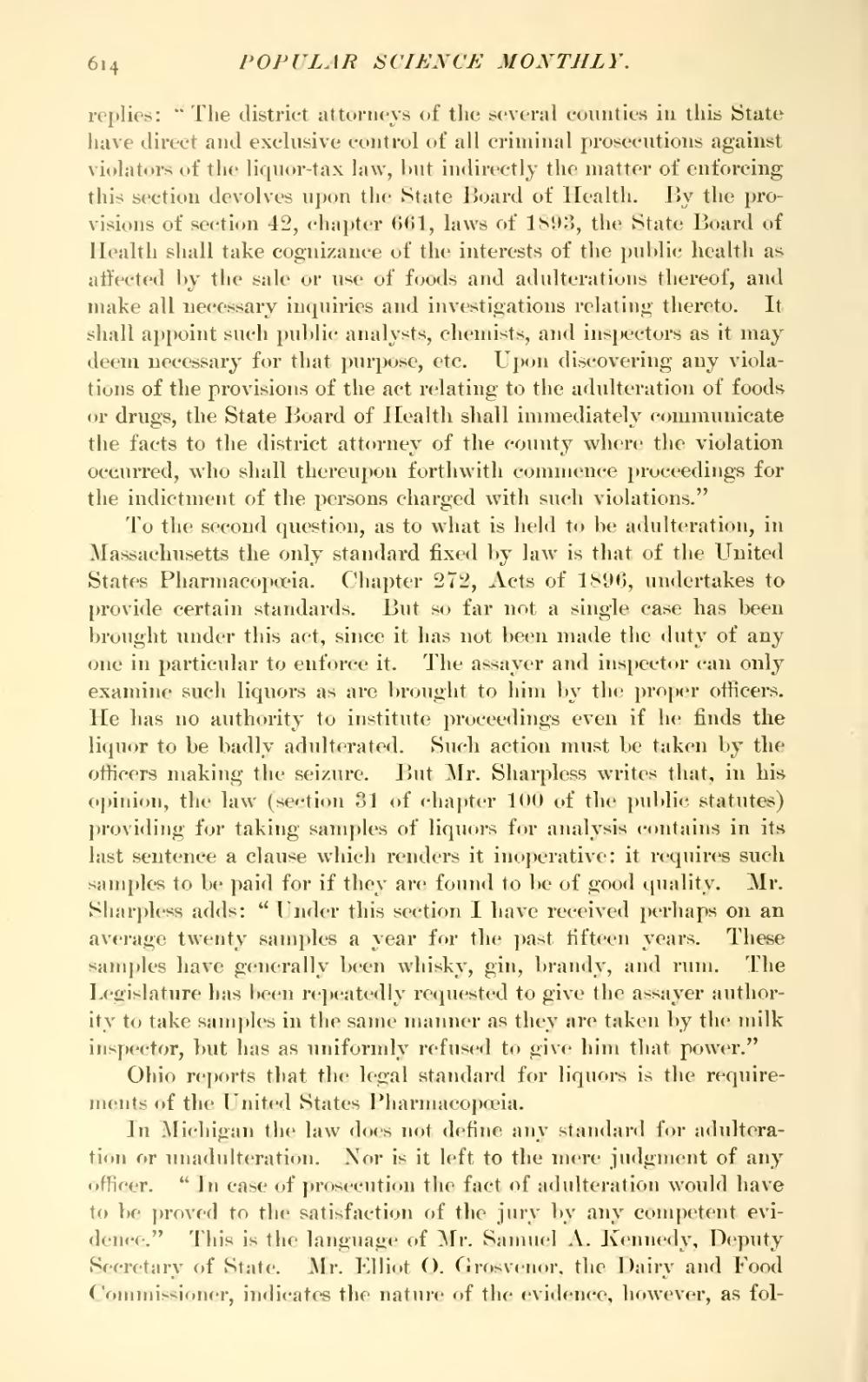replies: "The district attorneys of the several counties in this State have direct and exclusive control of all criminal prosecutions against violators of the liquor-tax law, but indirectly the matter of enforcing this section devolves upon the State Board of Health. By the provisions of section 42, chapter 661, laws of 1893, the State Board of Health shall take cognizance of the interests of the public health as affected by the sale or use of foods and adulterations thereof, and make all necessary inquiries and investigations relating thereto. It shall appoint such public analysts, chemists, and inspectors as it may deem necessary for that purpose, etc. Upon discovering any violations of the provisions of the act relating to the adulteration of foods or drugs, the State Board of Health shall immediately communicate the facts to the district attorney of the county where the violation occurred, who shall thereupon forthwith commence proceedings for the indictment of the persons charged with such violations."
To the second question, as to what is held to be adulteration, in Massachusetts the only standard fixed by law is that of the United States Pharmacopœia. Chapter 272, Acts of 1896, undertakes to provide certain standards. But so far not a single case has been brought under this act, since it has not been made the duty of any one in particular to enforce it. The assayer and inspector can only examine such liquors as are brought to him by the proper officers. He has no authority to institute proceedings even if he finds the liquor to be badly adulterated. Such action must be taken by the officers making the seizure. But Mr. Sharpless writes that, in his opinion, the law (section 31 of chapter 100 of the public statutes) providing for taking samples of liquors for analysis contains in its last sentence a clause which renders it inoperative: it requires such samples to be paid for if they are found to be of good quality. Mr. Sharpless adds: "Under this section I have received perhaps on an average twenty samples a year for the past fifteen years. These samples have generally been whisky, gin, brandy, and rum. The Legislature has been repeatedly requested to give the assayer authority to take samples in the same manner as they are taken by the milk inspector, but has as uniformly refused to give him that power."
Ohio reports that the legal standard for liquors is the requirements of the United States Pharmacopœia.
In Michigan the law does not define any standard for adulteration or unadiilteration. Nor is it left to the mere judgment of any officer, "In case of prosecution the fact of adulteration would have to be proved to the satisfaction of the jury by any competent evidence." This is the language of Mr. Samuel A. Kennedy, Deputy Secretary of State. Mr. Elliot O. Grosvenor, the Dairy and Food Commissioner, indicates the nature of the evidence, however, as fol-

